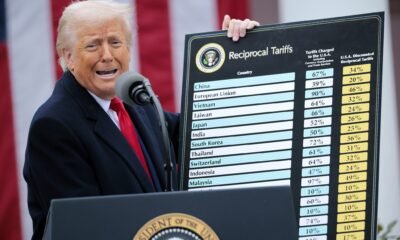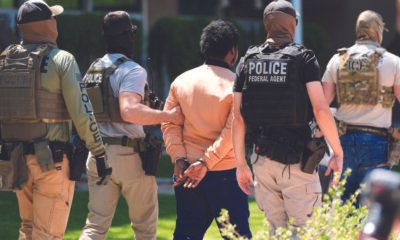2020 election
Courts Brace for Surge in Election Challenges as Legal Uncertainties Loom

As the 2024 elections approach, legal challenges are anticipated in the wake of contentious elections in 2020 and 2022. Previous experiences have set the stage for an increasingly litigious environment, which could pose significant challenges for election officials and candidates alike.
Election contests in Arizona have historically resulted in minimal binding case law. However, recent decisions from the Arizona Supreme Court and the Arizona Court of Appeals may serve as crucial references for future challenges. Notably, outstanding requests for clarification on election contest discovery constraints are expected to emerge once again in the upcoming election cycle.
Attorney Andrew Gould emphasizes that the implications of past cycles will only become evident once the 2024 results are in. “We don’t fully know all the lessons from those two cycles until we’re done with this one,” Gould remarked.
In Arizona, contesting an election is not a simple endeavor. The state imposes stringent timeframes and high burdens of proof, making successful challenges rare. Under the law, anyone eligible to vote can challenge an election’s integrity based on accusations of misconduct, illegal voting, or candidate ineligibility, among other reasons. Such contests must be filed within five days of the official canvass, and the judicial process requires a hearing within ten days.
“Once the votes are counted, it’s almost impossible to change those results,” Gould noted, highlighting the high standards imposed by current election laws. He expressed concern that public expectations often clash with legal realities in post-election challenges.
Recent appellate rulings reinforce this rigor. For instance, the Arizona Court of Appeals dismissed claims made by Kari Lake, an unsuccessful gubernatorial candidate, highlighting that uncertainties alone are insufficient to overturn election results. Judge Kent Cattani indicated that evidence must be demonstrably significant enough to affect the election outcome.
Both recent and historical rulings illustrate the prevailing legal standards. In cases like Miller v. Picacho Elementary School, it was reaffirmed that substantial evidence is crucial for challenges to succeed. The Arizona Supreme Court has largely upheld these standards, declining to entertain most of the issues raised in Lake’s appeal except for a remand on a minor point.
Another key legal battleground concerns the discovery process in election contests. This aspect is particularly relevant to the case filed by attorney general candidate Abe Hamadeh. While voters have the right to inspect ballots, ambiguities remain regarding what additional materials can be requested.
Wright, Hamadeh’s attorney, pointed out the need for clarity in discovery rules. In Hamadeh’s case, the court denied requests for specific records, leading to a broader unanswered question about the extent of discovery in future contests. The Court of Appeals’ stance was that they need not address all issues if one resolution suffices.
The legal landscape remains unsettled. Prior cases, including a ruling against former GOP Chair Kelli Ward concerning the 2020 presidential election, indicate a consistent pattern of courts requiring robust evidence of misconduct or fraud for challenges to be considered credible.
As the November elections draw near, the Arizona Supreme Court has emphasized the urgency of resolving election contests quickly. Chief Justice Ann Timmer set a hard deadline of December 6 for judgments in presidential elector contests, pointing out the necessity of allowing time for appeals before the electoral college convenes.
With mounting electoral litigation anticipated, the implications of past challenges will be scrutinized closely as candidates gear up for a potentially contentious election cycle. The evolving legal framework may shape the future of election contests in Arizona, with significant consequences for the 2024 elections.


















